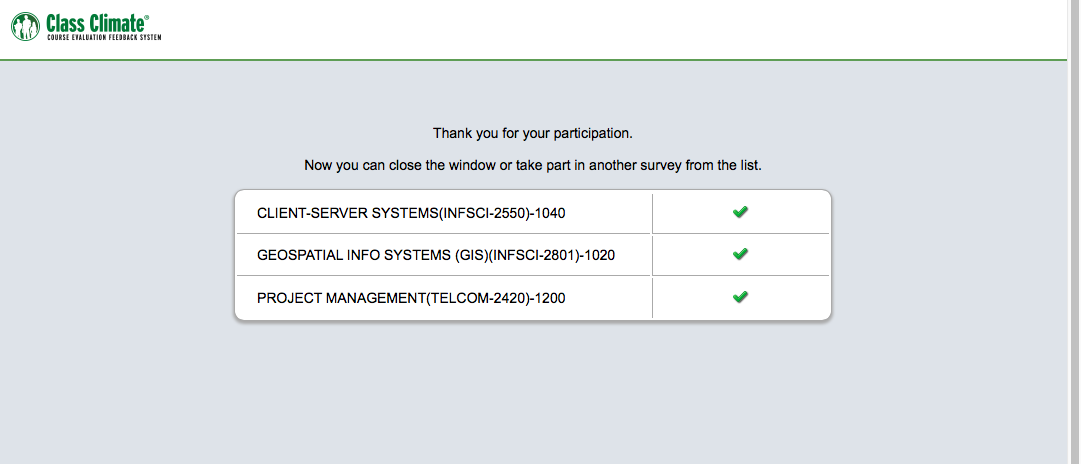Last Friday, April 11th, DSO, with the support of five other student organizations (ASIS&T, NDSA, SAASC, SCALA, SISGO), organized a panel event as an open discussion of the curricula, career, and community of the iSchool. With comments and discussion from our panelists and audience, we were able to guide the conversation with thoughtful input from individuals with varying roles and experiences in the iSchool. Moderated by Wes Lipschultz (Manager of Student Services at the iSchool), the panelists included:
We had a great turnout, and hope to recreate this event next year. Below are some of the highlights!
- Q: At the university level, in what ways are we promoting diversity and an inclusive culture? Can you, Dean Larsen, speak to some of your experiences working with the Diversity Task Force, and now, the iSchool Diversity Committee?
- Dean Larsen opened the discussion with information regarding the Diversity Task Force. He highlighted the accomplishments of E. J. Josey. Dean Larsen identified efforts that could be made to encourage recruitment and retention of faculty members of diverse backgrounds: offering opportunities to meet successful faculty from diverse backgrounds, informal mentoring, stronger social networking across campus, and stronger collaboration amongst colleagues with which they work.
- W. Lipschultz: “From my perspective…We run the risk of having more partitioned populations. For example, Tele students may view themselves as one piece, unable to unify with other programs for a strong voice. [We] want to break down barriers: develop mutual admiration across academic lines, gender, ethnicities; have school interests eclipse those boundaries; learn about each other regardless of which program a student is in.”
- Q: How does our curricula support and encourage student research and interdisciplinary and cross-program interaction?
- C. Robles illustrated the benefits to the Doc Guild Dissertation Bootcamp. The bootcamp provides a forum for PhD students of all three programs to discuss anecdotal evidence, form network relationships to co-author projects, and relate to one another on the struggles of balancing work and life. These highlight the importance of open dialogue and having multiple perspectives.
- Dr. Beaton acknowledged the benefits of sending students to iConference. iConference is an opportunity outside of the iSchool for intellectual growth and community building.
- Dr. Tipper also added the dream of adding a course that would span all three programs, though there are clear obstacles.
- Q: How is the iSchool evaluated and to what degree are student perspectives being integrated? How can we improve student understanding and incorporate student feedback of the curriculum in the Industry Advisory Council and the Board of Visitors?
- Dean Larsen pointed to accountability and focused on learning outcome assessment. Specifically, Dean Larsen focused on the importance of the OMET evaluations. He also suggested viewing Nobel Laureate Carl Weisman’s presentation, “What learning matters and how can it be measured?” Weisman speaks to the difficulties of evaluating teaching practices. Additionally, the Board of Visitors meets once a year and has a limited schedule. He notes that if students would like to present thoughts or findings, they are more than welcome to compile a concise presentation to be added to the Boards schedule.
- Dr. Richard Cox pointed out the decline in OMET responses due to the shift from an in-class physical form to an online version. This is a serious hindrance to curricula development.
- C. Robles also contributed the fact that the by-stander effect may also play a strong role in the decrease in OMET responses.
- Q: How can we improve communication between faculty and students in the Information Science & Telecommunications programs? Would program-specific student organizations and/or an Advisory Board be welcome in the iSchool?
- Though C. Robles notes that she is able to connect with students fairly well as a Teaching Assistant, she agrees with the need for an Advisory Board for the IS/Tele programs.
- Additionally, S. Zargar applauded the results of the Social Hours as mechanisms for connecting Masters and PhD level students with faculty. He notes that it is a great informal pipeline conducive to networking and community building.
- Brandi Belleau also shares that the MLIS Advisory Board has been a, “good constructive pipeline for complaints or just explaining why things cannot be changed, and understanding the big picture behind the scene.”
- Q: In hindsight, what kinds of opportunities and resources would have been useful?
- J. Mitchell: “I could have benefited more from a structured environment in which MLIS students could talk about what they are doing. The people you learn from are other students, from their partners/field placement experiences. Event to talk formally about their experiences; would have shed more light on the professional environment. This could also work well for assessment. Is the work in placements, are these experiences substantial? How to educate one another internally in the iSchool.”
- Q: As a Teaching Assistant and student, can you discuss how students have asked to work with real world experiences? Have you been able to incorporate that into your classes?
- C. Robles notes that she has seen many faculty members pass along pertinent information regarding internship opportunities. However, she also states that, “hands on experience can be difficult for some students, and as a Teaching Assistant, my job is sometimes to catch students up.”
- S. Zargar also notes that this can be addressed through offering more courses from professors of practice.
- Q: What support systems are in place for students who have concerns with staff and faculty? Can you speak about the social or academic contract between student and faculty and how that has impacted student/faculty interactions?
- Dr. Roger Flynn notes that this is a difficult situation, because, “if a student does not feel comfortable with a faculty member, there needs to be a[n alternate] channel: student services, or possibly another faculty member.”
- Dean Larsen shared a concept of green dots or some other signifier above office doors or on a person that would indicate availability to discuss any issues a student may have.
- Debbie Day also shared, “[this will require] a wide variety of people to handle these situations, [they] need to be properly trained to handle the situations, or know who to send them to. Support networks should be planned out and identified.”
- B. Belleau note the importance of sharing this information, of who and where these outlets are, with the student body.
Thank you to all of those that were able to attend the event! If you have questions about the event, or questions for the next event, do not hesitate to submit them to dso.pitt@gmail.com!

